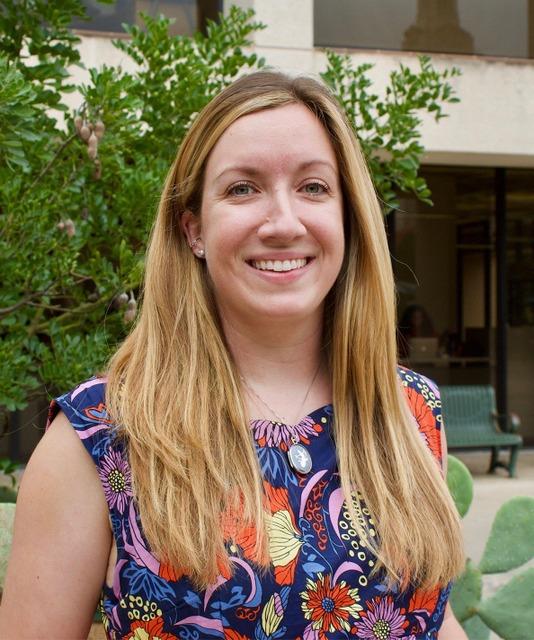
The International Association for Media and Communication Research -IAMCR- and the Urban Communication Foundation are pleased to announce that the 2021 Urban Communication Research Grant will be awarded to Kelsey Whipple, assistant professor in the Journalism Department at the University of Massachusetts Amherst, for her project Welcome to the neighborhood: Examining hyper-local information-sharing and community development on NextDoor. An honorary mention will be awarded to Ratan Naga Deepika, currently pursuing her PhD from the Department of Communication, University of Hyderabad. The awards will be formally granted during IAMCR's 2021 online conference.
UCF/IAMCR Urban Communication Research Grant Award Winner for 2021
Kelsey Whipple, University of Massachusetts Amherst
For the project: Welcome to the neighborhood: Examining hyper-local information-sharing and community development on NextDoor
Launched in 2011, the NextDoor social media app positions itself as a way for neighbors to get to know each other and their neighborhoods by communicating about shared causes and needs in a relatively private online space. If the classic quote is that ‘good fences make good neighbors,’ NextDoor subverts that idea — and physical fences — through a zip code-bound digital platform that facilitates interaction between urban and suburban neighbors about a wide variety of topics. Today, the hyper-local, inherently size-limited app fills a specific niche in a much larger galaxy of virtual communities by connecting people rarely more than a few miles from each other. This research examines NextDoor users’ perceptions of information-sharing, network-building and urban communication efficacy on the platform to better understand the role (and limitations) of technology in augmenting hyper-local communication. This research employs a survey and in-depth interviews to examine the impact of NextDoor on users’ knowledge of and perceptions of their communities and neighbors, as well as the information they value and share.
This research is important as a means of understanding how technology may seek (both succeeding and failing simultaneously) to facilitate urban communication and fill gaps in hyper-local information left by a dwindling local news industry and other infrastructural and environmental challenges. Similarly, it examines the realities and limitations of NextDoor as a growing and distinctly modern social medium that impacts users at the local and regional levels. In doing so, it seeks to add valuable insight to academic and public understanding of the way that people conceptualize, prioritize and share hyper-local information, as well as how they form social networks around this information in reaction to their urban environments. Finally, this research adds to the comprehensive existing literature about virtual communities and urban communication by introducing specific insights about the role of NextDoor within an ever-expanding cosmos of new and niche virtual communities.
Kelsey Whipple is an assistant professor in the Journalism Department at the University of Massachusetts Amherst. She is a journalism scholar and former journalist who studies gender and identity in the media and the influence of social media and other technologies on journalism. Her work has been published in Digital Journalism, Journalism Practice, Journalism & Mass Communication Quarterly, Computers in Human Behavior and the Howard Journal of Communications, among other publications.
UCF/IAMCR Urban Communication Research Grant Honorary Mention for 2021
Ratan Naga Deepika, University of Hyderabad
For the project: Role of Communication in Production of Space: An ethnographic study of a working class migrant community in Hyderabad, India
This proposal foregrounds Henri Lefebvre’s The Production of Space to understand the role of communication in the processes employed by a working class Odiya (people of esatern Indian state, Odisha) migrant community for producing and negotiating space in an urban setting.
This body of work would contribute to understanding the dynamics between migrant communities and the cities they move to, by highlighting the phenomenological aspect of production and negotiation of spaces that manifest themselves in a range of, sometimes subtle, communicative forms.
By adopting ethnographic approach, this study highlights that community development is the main fulcrum through which the community produces and reproduces space. Among the various aspects of community development, this study focuses on three strands which are communicative in nature and scope. They are i) Cultural performativity, ii) Community narrative and iii) Community communication hotspots.
This study is an on-going doctoral research project which seeks to examine the complicated, yet intertwined, relationship between migration, communication, and the production of space in an urban landscape.
Ratan Naga Deepika is currently pursuing a PhD from the Department of Communication, University of Hyderabad under Prof.Vinod Pavarala. Her research interests lie in culture and communication, visual communication, migrant communities and their cultures, urban communication, urban studies, city planning and the right to the city. Previously, she worked with an NGO called Yugantar on projects related to socio-economic development of marginalised groups particularly migrant communities. Apart from the academic interests she is a passionate photographer and an avid gardener.
Funded by the Urban Communication Foundation, the annual $1,750 research grant supports communication and media research that advances our understanding of the growing complexity of the urban environment. It is predicated on the assumption that communication scholars have a valuable contribution to make to understanding the urban landscape.
Members of the Selection Committee:
- Janet Wasko (Chair), University of Oregon, USA
- Susan Drucker, Hofstra University, USA
- Gary Gumpert, Urban Communication Foundation, USA
- Cees Hamelink, Netherlands
- Nico Carpentier, Charles University, Czech Republic
